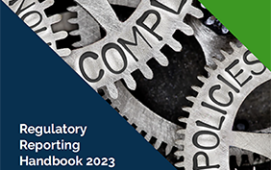In order to ensure that the industry isn’t faced with just another unique identifier to map to, data managers need to take action and provide feedback on their requirements to the regulatory community, according to Mark Davies, head of reference data at Royal Bank of Scotland (RBS). Davies, who is an active member of think tank JWG’s Customer Data Management Group (CDMG), reckons helping regulators to come up with reference data standards for entity and instrument identification is key to guaranteeing some progress is made.
The regulatory community is seriously examining the entity identification challenge, as highlighted by the incoming Office of Financial Research in the US and the work by the Committee of European Securities Regulators (CESR) on client and counterparty identification under the banner of the MiFID review. CESR, for example, has mooted the Swift provided Bank Identifier Code (BIC) as a possible solution to the entity identification challenge within firms’ transaction reports for Europe.
However, the proposals for the extension of the BIC to legal entity identification have proved controversial in some corners of the market and many have reservations about its suitability. Davies reckons the BIC may be a good starting point for the work because of Swift’s position in the market as an infrastructure for the settlement process. “Anything that is a regulatory or settlement requirement for the banks is clearly the logical place to start with identification because we won’t then have to start from scratch,” he explains.
The BIC is certainly embedded into certain aspects of financial messaging for the settlement cycle in many firms and thus may potentially have some advantage in reaching a tipping point as an identifier in the future. Nonetheless, Davies is also apprised of the hurdles that will need to be overcome first, which may include a reworking from scratch: “One of the challenges for Swift is that BIC is not a unique identifier and the move to this functionality might require the establishment of a whole new identifier set up.”
He also notes the potential for the newly tied up Avox and the Depository Trust & Clearing Corporation (DTCC) to come up with a good utility offering for the market, although he notes that this may require working with an organisation such as Swift in Europe to gain full momentum and global coverage. The DTCC certainly seems keen to get involved in the utility space and its potential with regards to the future of the Office of Financial Research has been noted by many in the market.
For now, the ball is in the court of the politicians, with the US president due to announce the new head of the Office of Financial Research in the near future (well, likely within the next six months). Davies reckons it will be the regulatory community driving the agenda for a utility, although he adds that, clearly, for the vendor or vendors that get the right offering, the potential is there for it to be a license to print money.
“However, the key (to the success of a utility) is going to be to be able to move pretty quickly because it has been talked about for last 10 years and I suspect it will be driven by what happens in the US. The next six months could be quite an interesting time and the banks need to get involved proactively,” he says.
This was the motivation behind Davies’ decision to get involved in the JWG’s CDMG, which has this year been working on defining a new data rulebook for the customer data space in Europe and engaging the regulatory community in a more open discussion about the regulatory impact on data standards. In February, the group published its finalised industry guidance on the maintenance of wholesale customer data, which aims to provide senior managers with the ability to understand the issues surrounding customer data and to benchmark their practices.
Subscribe to our newsletter




